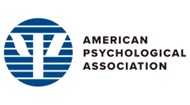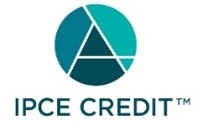
Parenting, Teaching and Treating Challenging Kids: The Collaborative Problem Solving Approach
Think:Kids and the Department of Psychiatry at Massachusetts General Hospital are pleased to offer an online training program featuring Dr. J. Stuart Ablon. This introductory training provides a foundation for professionals and parents interested in learning the evidence-based approach to understanding and helping children and adolescents with behavioral challenges called Collaborative Problem Solving (CPS). This online training serves as the prerequisite for our professional intensive training.
The CPS approach provides a way of understanding and helping kids who struggle with behavioral challenges. Challenging behavior is thought of as willful and goal oriented which has led to approaches that focus on motivating better behavior using reward and punishment programs. If you’ve tried these strategies and they haven’t worked, this online training is for you! At Think:Kids we have some very different ideas about why these kids struggle. Research over the past 30 years demonstrates that for the majority of these kids, their challenges result from a lack of crucial thinking skills when it comes to things like problem solving, frustration tolerance and flexibility. The CPS approach, therefore, focuses on helping adults teach the skills these children lack while resolving the chronic problems that tend to precipitate challenging behavior.
This training is designed to allow you to learn at your own pace. You must complete the modules sequentially, but you can take your time with the content as your schedule allows. Additional resources for each module provide you with the opportunity for further development. Discussion boards for each module allow you to discuss concepts and your own experiences with other participants. Faculty from the Think:Kids program monitor the boards and offer their point of view.
Registrants will have access to course materials from the date of their registration through the course expiration date.
Pricing: All Care Providers $149
NOTE: If you are paying for your registration via Purchase Order, please send the PO to [email protected]. Our customer service agent will respond with further instructions.
Cancellation Policy
Refunds will be issued for requests received within 10 business days of purchase, but an administrative fee of $35 will be deducted from your refund. No refunds will be made thereafter. Additionally, no refunds will be made for individuals who claim CME or credit, regardless of when they request a refund.
Moderator
Through the duration of the course, the faculty moderator will respond to any clinical questions that are submitted to the interactive discussion board. The faculty moderator for this course will be:
J. Stuart Ablon, PhD
***Please note that discussion boards are reviewed on a regular basis, and responses to all questions will be posted within one week of receipt.***
Target Audience
This program is intended for: Parents, clinicians, educators, allied mental health professionals, and direct care staff.
Learning Objectives
At the end of this program, participants will be able to:
- Shift thinking and approach to foster positive relationships with children
- Reduce challenging behavior
- Foster proactive, rather than reactive interventions
- Teach skills related to self-regulation, communication and problem solving
Accreditation
In support of improving patient care, MGH Institute of Health Professions is jointly accredited by the Accreditation Council for Continuing Medical Education (ACCME), the Accreditation Council for Pharmacy Education (ACPE), and the American Nurses Credentialing Center (ANCC) to provide continuing education for the healthcare team.
Psychologists

Continuing Education (CE) credits for psychologists are provided through the co-sponsorship of the American Psychological Association (APA) Office of Continuing Education in Psychology (CEP). The APA CEP Office maintains responsibility for the content of the programs. MGH Institute of Health Professions designates this activity for 3.0 CE credit.
Social Workers

As a Jointly Accredited Organization, the MGH Institute of Health Professions is approved to offer social work continuing education by the Association of Social Work Boards (ASWB) Approved Continuing Education (ACE) program. Organizations, not individual courses, are approved under this program. State and provincial regulatory boards have the final authority to determine whether an individual course may be accepted for continuing education credit. MGH Institute of Health Professions maintains responsibility for this course. Social workers completing this course receive 3.0 clock hours for continuing education credits.
IPCE Credit

This activity was planned by and for the healthcare team, and learners will receive 3.0 Interprofessional Continuing Education (IPCE) credits for learning and change.
| Segment 1 | Introduction |
| Review of Philosophy | |
| Limitations of Motivational Approaches | |
| The Shift in Thinking: Behavioral Challenges as Learning Disability | |
| Segment 2 | Assessment |
| Identifying Problems to be Solved | |
| Five Domains of Thinking Skills | |
| Segment 3 | Planning |
| Review of Three Plans and their Goals | |
| Prioritizing and Planning | |
| Segment 4 | Intervention |
| Proactive vs. Emergency Plan B | |
| Ingredients of Plan B | |
| Segment 5 | Conclusion |
| Problem Solving as Skills Training | |
| Emergency Plan B | |
| Group Plan B | |
| Implementation in Systems | |
| Research on CPS Across Settings | |
| Resources |
Stuart Ablon, PhD
Available Credit
- 3.00 Social Workers
As a Jointly Accredited Organization, the MGH Institute of Health Professions is approved to offer social work continuing education by the Association of Social Work Boards (ASWB) Approved Continuing Education (ACE) program. Organizations, not individual courses, are approved under this program. State and provincial regulatory boards have the final authority to determine whether an individual course may be accepted for continuing education credit. MGH Institute of Health Professions maintains responsibility for this course. Social workers completing this course receive 3.00 clock hours for continuing education credits.
- 3.00 Participation
This course allows other providers to claim a Participation Certificate upon successful completion of this course.
Participation Certificates will specify the title, location, type of activity, date of activity, and number of AMA PRA Category 1 Credit™ associated with the activity. Providers should check with their regulatory agencies to determine ways in which AMA PRA Category 1 Credit™ may or may not fulfill continuing education requirements. Providers should also consider saving copies of brochures, agenda, and other supporting documents.
- 3.00 Psychologists CE Credit
Continuing Education (CE) credits for psychologists are provided through the co-sponsorship of the American Psychological Association (APA) Office of Continuing Education in Psychology (CEP). The APA CEP Office maintains responsibility for the content of the programs. MGH Institute of Health Professions designates this activity for 3.00 CE credit.

 Facebook
Facebook X
X LinkedIn
LinkedIn Forward
Forward